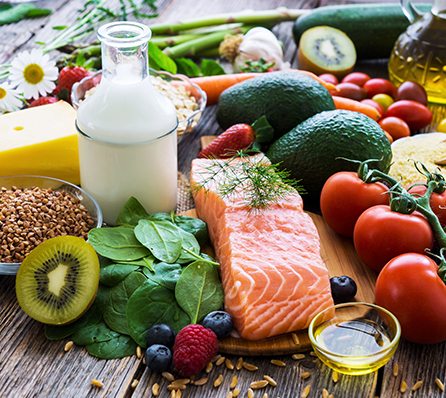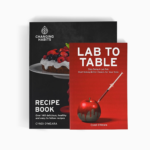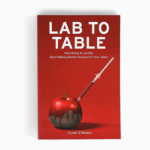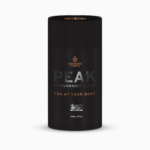There seems to be a common trend that ‘if you suffer from gallstones then the solution is to remove your gallbladder.’ Why?
Every organ within our body has its own function and is vital for your body to perform optimally. If the organ wasn’t serving a purpose, why would we be born with it?
The gallbladder certainly is worthwhile nurturing and keeping if you can. The gallbladder is a small pear-shaped organ that stores bile and is located just beneath the right lobe of the liver. The role of the gallbladder is to reserve bile when it is not being used for the digestion of fats. When food is ingested and enters the small intestine, a hormone known as cholecystokinin signals the gallbladder to contract and secrete bile to begin the breakdown of fats.
One of the most common surgeries to be performed is gallbladder removal, which is known as a cholecystectomy. This is usually carried out to remove gallstones. To me, the removal of the gallbladder is just another ‘Band-Aid’ solution, as we haven’t discovered WHY gallstones formed in the first place. Instead we’ve just masked the problem by removing the complete gallbladder. The original cause of the problem will still be there, it just won’t eventuate into gallstones anymore, instead it will manifest as something else in the future.
Foods to avoid if you have gallstones:
- Gluten – including wheat, rye, spelt, oats and barley
- Soy – particularly if it has not been fermented. Organic tamari may be well tolerated
- Corn – particularly if it is not organic
- Refined vegetable oils, though cold pressed and organic oils are fine such as olive oil and coconut oil
- Foreign additives such as preservatives, flavours and colours and so on. Avoid anything you do not recognise the name of
- Unactivated nuts and seeds
Foods to eat if you have gallstones:
- Fermented foods – provides beneficial bacteria to aid digestion and aid in eliminating toxins
- Turmeric – reduces inflammation, pain and aids in liver health
- Dandelion root – aids in liver and gallbladder function
- Milk thistle – aids in liver health
- Activated charcoal – to aid in the elimination of toxins
- Plenty of green vegetables and fresh herbs such as coriander, thyme, oregano and basil
- Pastured, free range meats
- Wild caught fish
- Activated nuts and seeds
- Soaked and/or fermented organic grains like rice, quinoa and buckwheat if tolerated
- Apple cider vinegar to aid digestion through increasing the stomachs acidity and enzyme production. It has been known to reduce the severity of the gallstones and their pain. Mix 1-2 tbsp. of raw and organic apple cider vinegar into water and drink this daily.
- Quality fats such as grass fed butter or ghee and cold pressed coconut oil, olive oil and Inca Inchi oil
What to eat if you’ve had your gallbladder removed?
If you have had to have your gallbladder removed, it is important to not return back to the diet and lifestyle you had that caused your gallstones to form. It is important to consider WHY they occurred, and discover what you can do differently.
The common bile duct still remains after the gallbladder is removed, which allows an individual to ‘survive well’ without it. There is in fact very little evidence showing that a low fat diet improves the symptoms in individuals that have just had their gallbladder removed.
- Do not go on a low fat diet. In short, fats are crucial for your health to:
- Absorb fat soluble vitamins like vitamin A, D, E and K.
- Hormone production
- Cell to cell communication
- Brain health
- For their antimicrobial properties for your immune system
Recommendations
- Ox bile – I recommend this to everyone who has had their gallbladder removed as it just seems to help. It is simply the ‘replacement method’. It gives you the ability to break down fats more efficiently if your liver is not producing the amount of bile needed to digest the fat that you are eating.
- Consume fermented foods. These are pre-digested by bacteria and therefore make these foods easier to digest. Nutrients are also enhanced when the food is fermented, and they are incredibly rich in enzymes that will assist in the digestion of your food, as well as provide essential beneficial bacteria that may be altered during your surgery.
- Coconut oil is a great fat for those with no gallbladder as it doesn’t need bile acids for absorption, so it is absorbed in the small intestine.
- Look after your liver. If you had your gallbladder out, then there is a high chance it began with liver problems, so consider seeking advice to support your liver.
- Dandelion root is fabulous to support the common bile duct to aid in the digestion of fats. It helps with bile synthesis. Dandelion root is also fabulous for liver health.
- Ginger can also help breakdown fat, and calm down any nausea you may experience.
- Avoid canola oil, soybean oil, corn oil, and all hydrogenated vegetable oils including margarine, vegetable fat and so on.
- Avoid foods that are difficult to digest such as processed, refined foods. This will ensure you are getting the most out of your food.
If you have had your gallbladder removed, there is no reason to stress! Of course it is best to keep your gallbladder where it belongs, although you now have the tools, tips and tricks to ensure you continue living a long, happy life with a diet that is smothered in good fats with no problems.
Sheridan Williamson
Nutritionist









Hi Sheridan, this is definitely an interesting read! I had my gall bladder removed 18 months ago now. I never had excruciating pain like some people, just a niggly little pain every now and then on my right and not feeling very well after a fatty meal. I mentioned this to my doctor who organised an ultra sound as I have other family members that have had their gall bladder removed ( my mum, brother, three aunts and a cousin). Imagine my surprise though to find my gall bladder was full and swollen! I always thought I ate healthy and so did my family! Anyway, it appears that there must be something that caused a family to be predisposed to developing something like this. I still need to be careful about the types of meals I eat ( can be hard when eating out) but am certainly glad to have it out as it was quite diseased.
Hi Jackie, very interesting! Wow, seems to be very prevalent in your family. Glad you listened to your body and took action. Have a beautiful week!
I am due to get mine removed in a few weeks, we also have a lot of the women in our family have theirs removed in their 20s and 30s with gallstones and causing symptoms, all eat different, all in different areas and I am overseas the other side of the world and mine is full of stones. I never had the excruciating pain either, rather chronic symptoms as I have developed nausea, gas, stomach pain, rib aches, bloating, IBS symptoms, extreme weight loss and reflux due to it, so no choice. this is despite eating 90% apleo for 5 + yrs and always eating fermented foods, kefir, dandelion tea, turmeric on most foods, limited dairy and gluten ( now been dairy and gluten free since October) I have worked with naturopaths and tried all supplements and even chanca piedra and no luck, so now restricting foods isnt working as well I am waiting referral. I can no longer tolerate eggs, most coconut products, dairy, gluten, limited nuts and seeds, no red meat, no raw vegetables and limited fruit. I take ox bile and digestive enzymes with every meal. The genetic link is strong in our family too!
Can you do an article like this on kidney stones(calcium oxalate)? I do know when I eat a cleaner diet I don’t have as much trouble, but I seem to have chronic kidney stones. Always releasing them and surgery usually every few years for those so large they get stuck.
Thanks
Hi Cindy, we can certainly keep this in mind!
A great article – thanks! I find it extremely frustrating that dietitians and numerous doctors told me the best way to treat the sludge in my gall bladder was a ‘no fat’ diet…and removal of the gall bladder -because it would just keep causing painful attacks. I now wonder if it may have been my previous ‘low fat’ diet that contributed to the issue in the first place? – the beauty of hind sight!
Does having a missing gallbladder subject you to being more susceptible to gastritis? If so, what foods would you recommend to avoid gastritis?
Hi Theresa, gastritis is a whole new topic in itself though the above tips will still assist in lowering your chances of experiencing gastritis. Many things can be causing this, though start with the above tips and possibly seek personalised advice to fine tune your diet and health. All the best! Sheridan.
I found out yesterday I have multiple gallstones and some are in my bile duct. I thought my diet was pretty good (real food, GF, DF and healthy fats). So confused with what to eat now. Dr said limit fats, but I pretty much live on avocados, eggs, coconuts, nuts, seeds & dark chocolate. No idea what has caused the gallstones or how long they have been there. I suspect specialist will recommend surgery due to the number of stones in the duct. What causes gallstones and should I stick to my current eating habits?
Hi Robyn, in this case, it is best to seek personalised advice to find if there is anything else going on that may be causing the gallstones. Your diet is beautiful, so you are doing well there though make sure you are doing it 100%. They may have been formed quite some time ago. I suggest seeking personalised advice to fine tune things. Sheridan.
hi there, i have just found out that i have gallstones. I am looking for the best diet to help improve my symptoms. All online articles are saying LOW Fat diet but I’m hoping to start my weight loss program eating good healthy fats like avocados and salmon etc…. is that ok???
Hi Kara, yes fats are essential to your health. I would do this in conjunction with the other tips mentioned in the article, such as apple cider vinegar and dandelion root to name a few. It is very important that you avoid the inflammatory foods. All the best with your changes :). Sheridan.
I have had my gallbladder removed from having gallstones and I wanted to go on the apple cider vinegar diet. Would that be okay.
Hi Trywa, sorry I’ve never heard of an apple cider vinegar diet before, so i’m not sure if I would recommend this. If you need further assistance please contact our office or email enquiries@changinghabits.com.au
also can you please advise on consuming dairy with gallstones? Again some forums say low fat dairy but my “gut” tells me different….
I really do enjoy your articles Cyndi and learn so much from them. Many many thanks. Lynn
Great article thankyou. Could you tell me if there is a brand of ox bile you recommend? Also what are your thoughts on taking digestive enzymes when you’ve had your gallbladder removed? Thanks ☺
Hi Katie, we would recommend you consult with chosen healthcare practitioner as they will have specific brands they can recommend to you.
Hi, I’ve recently finished the 4Phase Fat Protocol. Currently in Phase 4Eva and have been totally happy with results but when trying something new or eating out I am getting terrible pain the next day. A pain that is exactly like the pain I had when I had gallstones (19yrs ago). I can’t work out exactly what’s causing it as it seems to be different things each time.
Just wondering if this is normal while adjusting to foods again, it’s very uncomfortable.
Thanks
Hi Jenny,
So sorry to hear this! Can you please call us to schedule in an appointment for a consultation or perhaps contact your preferred chosen health care practitioner for advice. You may need some support to help you digest fats so you can avoid these uncomfortable symtpoms.